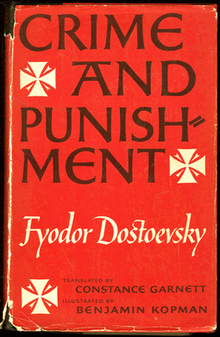
Crime and Punishment Page 3
We found 14 free papers on Crime and Punishment
Essay Examples
Overview
Why has Bureaucracy Been Considered the Most Rational Form of Work Organization
Bureaucracy
Work
What critism can be made? Organizational structure provides a backbone upon which all of a company’s operational policies and work processes are built. It lays out managerial reporting relationships and the flow of ideas, decisions and information of the company. There is no single organizational structure that is inherently better than another. Rather, each structure…
The Presidency and Bureaucracy: Has the Presidency Become Too Powerful?
Bureaucracy
Human Activities
Leadership
Since Obama’s inauguration as the next President of the United States of America, the nation has been constantly waiting for the social, political, and economic changes that would take place through Obama’s presidency and leadership. Based on the performance of Obama within the 100 days of his presidency, Andrea Mitchell, a chief correspondent for…
Ming and Qing Dynasty Compare and Contrast
Bureaucracy
China
Social Class
The Ming and Qing Dynasties had similarities such as social structures and examination systems. Both empires had an upper, middle, and lower level to society. The highest class was composed of the emperor and his family, scholar bureaucrats, and landowners. Below them were peasants, artisans, and merchants, and the last class were slaves, indentured servants,…
Bureaucratic Structure and Personality
Bureaucracy
Personality
The aims of the article are quite clear cut. Robert K Merton examines the structure and dysfunctions of a bureaucracy, also structural sources of over conformity. He has provided this article to give the reader an understanding of how an organisation is structured describing the ideal form of bureaucracy in giving us theories, he shows…
The Classical Theory of Organisation and It’s Relevance
Bureaucracy
Organization
Organizational Structure
Almashaqba Irbid Private University, Dept of Business Admin Marzouq Ayed Nemer Al-Qeed Applied Science Private University, Department of Hotel Management Abstract Organization facing competition need to take care of different dimensions of management to perform effectively such as style of leadership, motivational factors, and the importance of informal relations. The classical theory of organization suffers…
Compare and Contrast Marx, Durkheim and Weber
Bureaucracy
Capitalism
Social Class
Compare and contrast the analysis of law by Marx, Durkheim, and Weber. The analysis of law provided in the works of Marx, Durkheim, and Weber is greatly influenced by their theories. According to Marx, laws are designed to serve the interests of capitalism and the ruling class of capitalists. They use these laws to oppress…
Max Weber & How Bureaucracy Affects Effective School Management
Bureaucracy
Leadership
Organization
Introduction One of the famous classical management theories is the theory of Bureaucracy by Max Weber (1864-1920) that describes a rational and efficient form of organization characterized by rule-oriented form of organization. According to Miller (2005), Weber’s bureaucracy is believed to dominate the society due to its technical superiority (p.10). The Weber’s concept of…
The Different Institutions of Government: Trustee vs. Delegate Functions of Representation
Bureaucracy
Democracy
Election
Political science
United States
Voter Turnout
In a democratic government, functions of representation can sometimes become skewed or misunderstood. I will examine the different institutions of government including the legislature, the executive, the bureaucracy, and the courts pointing to their differences in trustee vs. delegate functions of representation. My understanding of a trustee is that it is someone in a position…
Administrative Discretion – Summary
Bureaucracy
Expert
Government
Max Weber
Policy
Political science
Running Head: Administrative Discretion 1 Administrative Discretion Joy M. Stiles Grantham University Administrative Discretion 2 Abstract To understand what the advantages and disadvantages to restriction of laid down rules for Public Administration, one should look at the views of Max Weber and of the more modern thinkers of our society. At the time of Weber’s…
Mary Parker Follett Biography
Bureaucracy
Science
This essay will focus on Mary Parker Follett’s main contributions to management thought and practice. Specifically, it will explore three key areas: her ideas about organizations as functional communities, her belief in managers as facilitators of collaboration within organizations, and her theory on the potential of groups to utilize individual talents for overall improvement. Firstly,…
| author | Fyodor Dostoevsky |
|---|---|
| genre | Philosophical novel; Psychological fiction; Crime fiction |
| originally published | 1866 |
| description | Crime and Punishment is a novel by the Russian author Fyodor Dostoevsky. It was first published in the literary journal The Russian Messenger in twelve monthly installments during 1866. It was later published in a single volume. |
| characters | Rodion Raskolnikov, Sonia Marmeladova, Arkady Ivanovich Svidrigailov |
| quotations | “Pain and suffering are always inevitable for a large intelligence and a deep heart.” “I did not bow down to you, I bowed down to all the suffering of humanity.” “We’re always thinking of eternity as an idea that cannot be understood, something immense. |
| information | Age: 23-year-old Language: Russian Message: Alienation from Society Alienation is the primary theme of Crime and Punishment. At first, Raskolnikov’s pride separates him from society. He sees himself as superior to all other people and so cannot relate to anyone. Within his personal philosophy, he sees other people as tools and uses them for his own ends., Set: Crime and Punishment is set in St. Petersburg, Russia. St. Petersburg is located on the middle western border of Russia between Finland and Estonia., |

